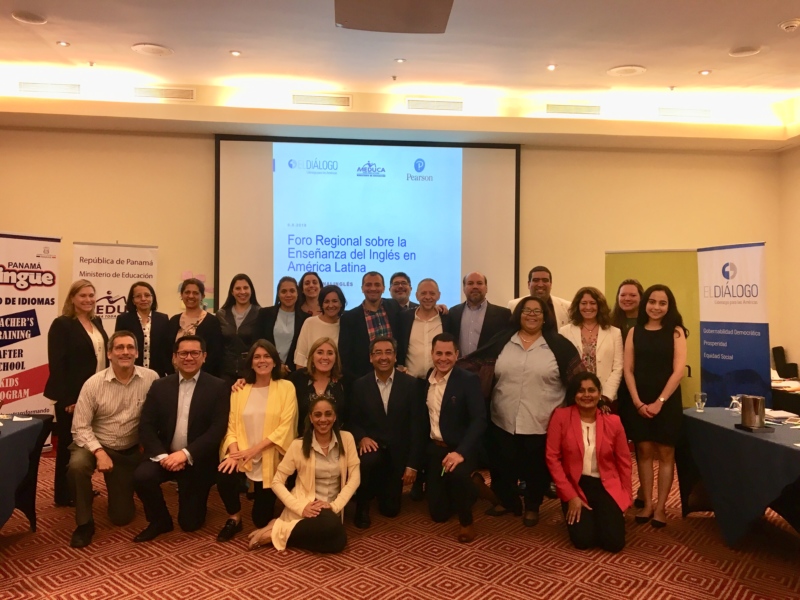
English Language Learning in Latin America
English proficiency is a critical tool for competitiveness in the global economy. How can governments implement effective English language learning policies and programs?
This post is also available in: Español
English proficiency is one of the most in-demand skills in the global job market. Latin American countries have made significant investments to provide opportunities for English Language Learning (ELL) in their public-school systems, but there is still much to be done to ensure their quality. To advance the ELL agenda in the region, on August 8, 2018 the Inter-American Dialogue held the first Regional Forum on English Language Learning in Latin America in Panama City, in partnership with the Panamanian Ministry of Education and with support from Pearson. The event brought together over thirty participants from 10 different countries to share their countries’ experiences with ELL programs, in order to identify common challenges, lessons learned and opportunities for regional collaboration on this topic.
The event began with opening remarks by Eneida López, director of the Ministry of Education’s Panama Bilingüe program, Gina Garcés, Vice Minister of Education of Panama, and Ariel Fiszbein, Education Program Director at the Inter-American Dialogue. Participants then engaged in a roundtable discussion, during which they shared their perspectives on the main challenges and lessons surrounding English language instruction, based on their experiences working in ELL programs.
Key messages from the discussion included:
Policy frameworks for ELL programs:
English teachers in Latin America:
The event ended with a conversation on opportunities for future collaborative work on this topic. Participants were eager to meet in the future to advance a regional project on one or two specific areas, possibly focusing on teacher evaluations and learning standards.
English proficiency is a critical tool for competitiveness in the global economy. How can governments implement effective English language learning policies and programs?
The Inter-American Dialogue hosted a panel discussion on September 19, 2017 to celebrate the launch of its latest report, “English Language Learning in Latin America.”
Ariel Fiszbein del Diálogo Interamericano habla con CNN, Semana y El Tiempo sobre los desafíos a la enseñanza del idioma inglés en América Latina y las opciones de política que pueden mejorar los resultados de aprendizaje.
 Inter-American Dialogue
Inter-American Dialogue
 Video
Video
